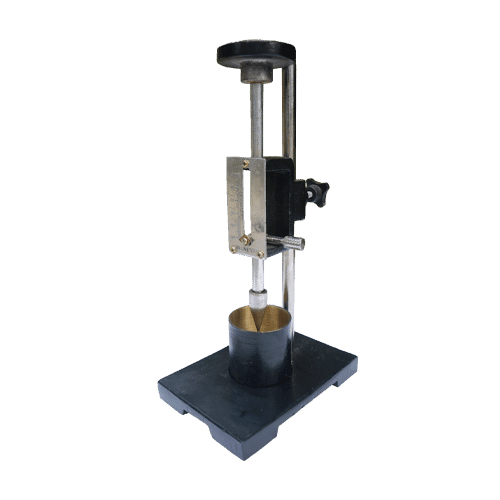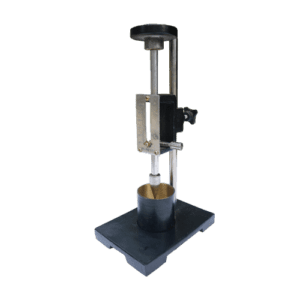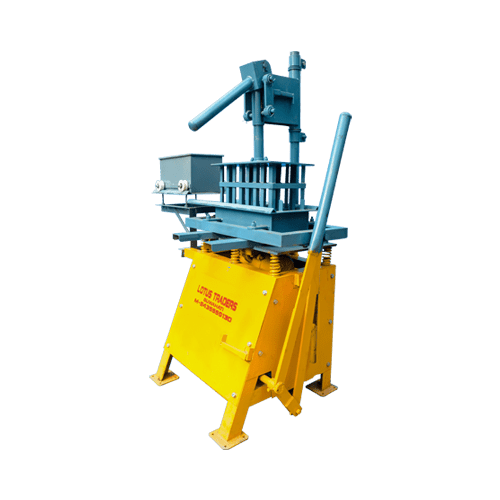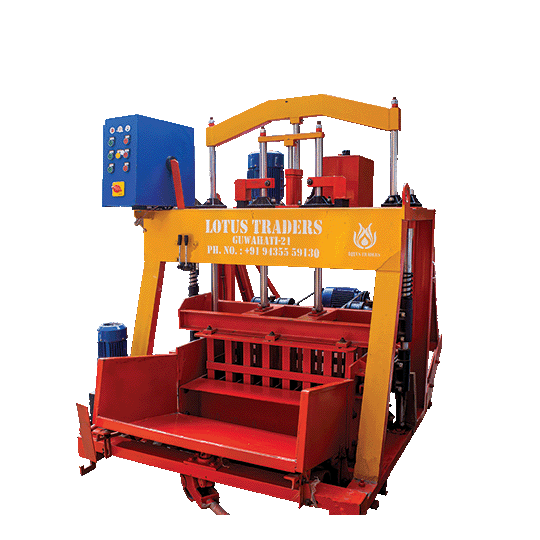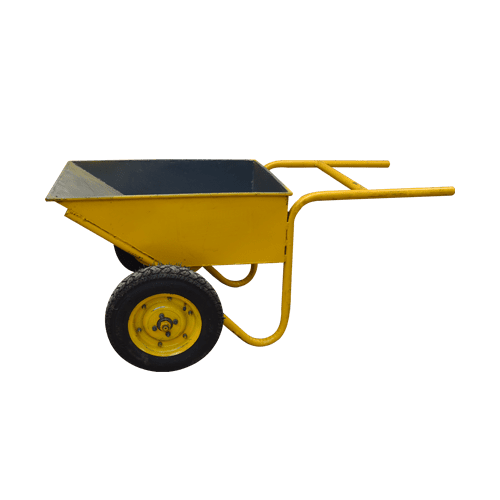Soil Cone Penetrometer
- High Quality Materials
- Compliance With Standards
- Clear Product Information
- Warranty & Support
- Product Testing & Certification
- Delivery & Policy
- Ask a Question
- Estimated Delivery: 5 Days – 10 Days
- DESCRIPTION
FEATURE | SPECIFICATION |
Power | Electric |
Total sliding weight | 148 gm |
Cone Angle | half angle of 15-30 minutes |
Information About Soil Cone Penetrometer:
Soil cone penetrometer
INTRODUCTION
In this case, the soil cone penetrometer is a geotechnical instrument that measures resistance to penetration by measuring force against displacement. Formed by a cone-like tip that is connected to a rod, it goes into the ground which engineers use as an instrument for determining soil compaction and consistency.
As the penetrometer gets down, resistance readings are registered that can be used to characterize soil and choose necessary parameters of foundation design. It is a lightweight, mobile machine that finds use in construction and agriculture helping to assess soil’s strength as well load bearing capacity. The data collected provides professionals with a point of reference in order to keep structures built on the land’s soil stable and safe.
The soil cone penetrometer proves to be an important fundamental instrument in geotechnical investigations because of its simplicity and effectiveness, which yields positive results on every construction project.
KEY FEATURES
Design: The cone penetrometer for soil is usually a hand-held instrument, comprising the metal part of seat shape joined to rod.
Measurement Scale: The rod is calibrated, and the depth markings enable accurate penetration into the soil.
Cone Shape: When the cone point penetrates, it reduces soil disruption while offering precise measurements of field resistance.
Handle and Grip: It comes with one convenient handle for easy gripping and penetration tests.
Material: Made from hard-wearing materials such as stainless steel to meet different soil situations while guaranteeing continuous operation.
Versatility: The penetrometer applicable to any kind of soil makes it possible to evaluate the degree of compaction and thus serves for agriculture, construction, or even environmental work.
Portable: Its portable layout makes it easy to transport the machine from one testing center to another.
Quick Results: This provides quick on-site results, which makes it useful for evaluating strength and compaction performance in situ.
Cost-Effective: Represents a highly cost-effective alternative to complex laboratory testing methods of assessing soil properties.
UNDERSTANDING THE WORKING PROCEDURE
Soil cone penetrometer is an instrument which tests penetration resistance of soil. It is made up of a metal cone tip attached to rod. The process entails periodically feeding the cone into the ground. In moving ahead, the penetrometer detects resistance and it is usually presented in terms of force or pressure. The penetration resistance of the cone offers key information concerning soil compression, texture and moisture content.
A higher resistance reading may imply that the soil is denser and more compacted, whereas a lower value implies looser or softer soil. This data is commonly used by researchers, geotechnical engineers and agricultural professionals to evaluate soil strength compaction level soils for purposes such as construction or agriculture. To conclude, the soil cone penetrometer measures resistance to drive into soil. It is used in evaluating properties of soils that are important for many purposes including construction and agriculture.
USAGE AND APPLICATION
Soil cone penetrometer is a widely used tool in geotechnical engineering to measure soil compaction and consistency. It involves a cone-shaped probe which is pushed into the soil, measuring resistance during penetration. It is also used by the farmers for soil density assessment and to choose proper tillage practices. In construction, it allows evaluating the strength of soil in order to ensure appropriate support for structures through foundation design.
Civil engineers also use it to determine the stability of slopes and embankments by determining shear strength soil. Moreover, the penetrometer facilitates soil classification which is helpful for different types of land use planning tasks. Due to its flexibility, it is a necessary tool for agriculture, construction and geotechnical research in soil projects allowing the informed decisions.
ADVANTAGE AND BENEFIT
The advantages offered by the soil cone penetrometer in geotechnical investigations are as follows: Initially, it offers an easy and affordable soil compaction assessment mechanism that helps in determining the stability of soil and its load-bearing capacity.
The portability feature of this sensor allows for on-site measurement which makes it easy to collect data from various locations. Secondly, using a penetrometer allows to monitor soil conditions in real-time thus providing immediate information about changes of density and texture. In addition, this is a useful instrument in construction projects because it allows the engineers to make reasonable decisions about foundation design and building methods.
This simplicity makes the application readily available for all field technicians which eliminates complicated training. In general, the soil cone penetrometer represents a sufficient tool for geotechnical engineers who use data obtained by this instrument to analyse foundation and ensure safety of structures as well as speed up construction operations.
CONCLUSION
With the soil cone penetrometer, it is possible to estimate compaction of the soil and identify how much capacity bearing has. Instrument for measuring the resistance that a cone encounters while being inserted into soil, this device is used to determine strength of soils and degree of compaction.
Its simplicity and portability lead to wide usage in geotechnical engineering, construction as well as agriculture industries. The results yielded from cone penetrometer tests help in foundation design, road construction and the development of proper agricultural strategies.
It is an effective technique, though interpretation needs professionalism; such as soil composition and moisture content are considered. In general, the soil cone penetrometer is a vital tool that enhances stability and improves productivity in various areas involving soils.
The cone soil penetrometer measures the penetration resistance of soil.
The penetrometer has a cone-shaped probe that is driven into the soil’s surface, an indication of how strongly it was compacted.
Soil compaction, which assists with agriculture and crop management decisions is a commonly used application. It is also useful in construction to assess the stability of soils.
The resistance encountered by the cone penetrometer depends on soil moisture, texture and amount of organic content in this type of a material.
The penetration depth is not uniform, but most assessments are directed at the topsoil layer since it influences plant development directly.
Yes, cone penetrometer is flexible and suitable for different soil types, giving us information about the status of soils.
Soil compaction limits root growth, influences water movement and nutrient availability which affects overall plant health negatively impacting crop productivity.




